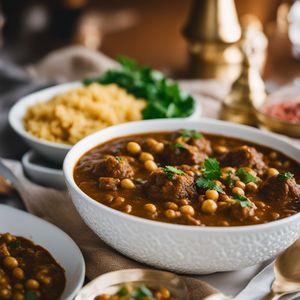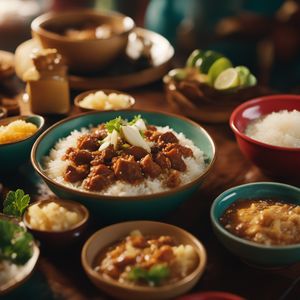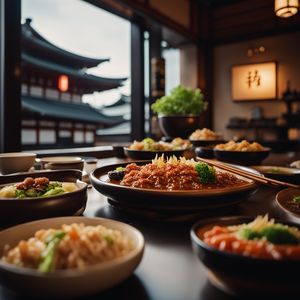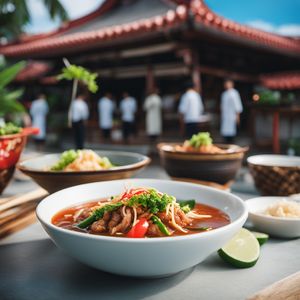
Dish
Nikujaga
Nikujaga is a stew made with thinly sliced beef, potatoes, onions, and carrots. The ingredients are simmered in a sweet and savory broth made with soy sauce, sake, and mirin. The dish is typically served with a bowl of rice. Nikujaga is a popular home-cooked dish in Japan and is often served as a comfort food. It is easy to make and can be customized to suit individual tastes.
Origins and history
Nikujaga originated in Japan in the late 19th century. It was created as a way to incorporate Western ingredients like potatoes and meat into Japanese cuisine. The dish became popular during World War II when food was scarce and people had to make do with what they had. Today, Nikujaga is a staple in Japanese home cooking and is often served in restaurants as well.
Dietary considerations
Nikujaga is not suitable for vegetarians or vegans as it contains meat. It is also not gluten-free as it contains soy sauce. However, it can be made with gluten-free soy sauce for those with gluten sensitivities.
Variations
There are many variations of Nikujaga, but the basic recipe remains the same. Some variations include adding mushrooms, green beans, or konnyaku (a type of yam cake). Some people also like to add a boiled egg to the dish.
Presentation and garnishing
Nikujaga is typically served in a bowl with the broth and vegetables on top of the rice. It is often garnished with green onions or sesame seeds.
Tips & Tricks
To make the dish more flavorful, marinate the beef in soy sauce and sake before cooking. You can also add a dash of sugar to the broth to balance out the flavors.
Side-dishes
Nikujaga is typically served with a bowl of rice. It can also be served with pickles or a simple salad.
Drink pairings
Nikujaga pairs well with a light beer or sake.
Delicious Nikujaga recipes
More dishes from this category... Browse all »

Aab gosht
Indian cuisine

Abgoosht
Iranian cuisine

Adobo
Filipino cuisine

Adobo sa gatâ
Filipino cuisine

Adobong baboy
Filipino cuisine

Adobong baka
Filipino cuisine

Adobong dilaw
Filipino cuisine

Adobong hito
Filipino cuisine




